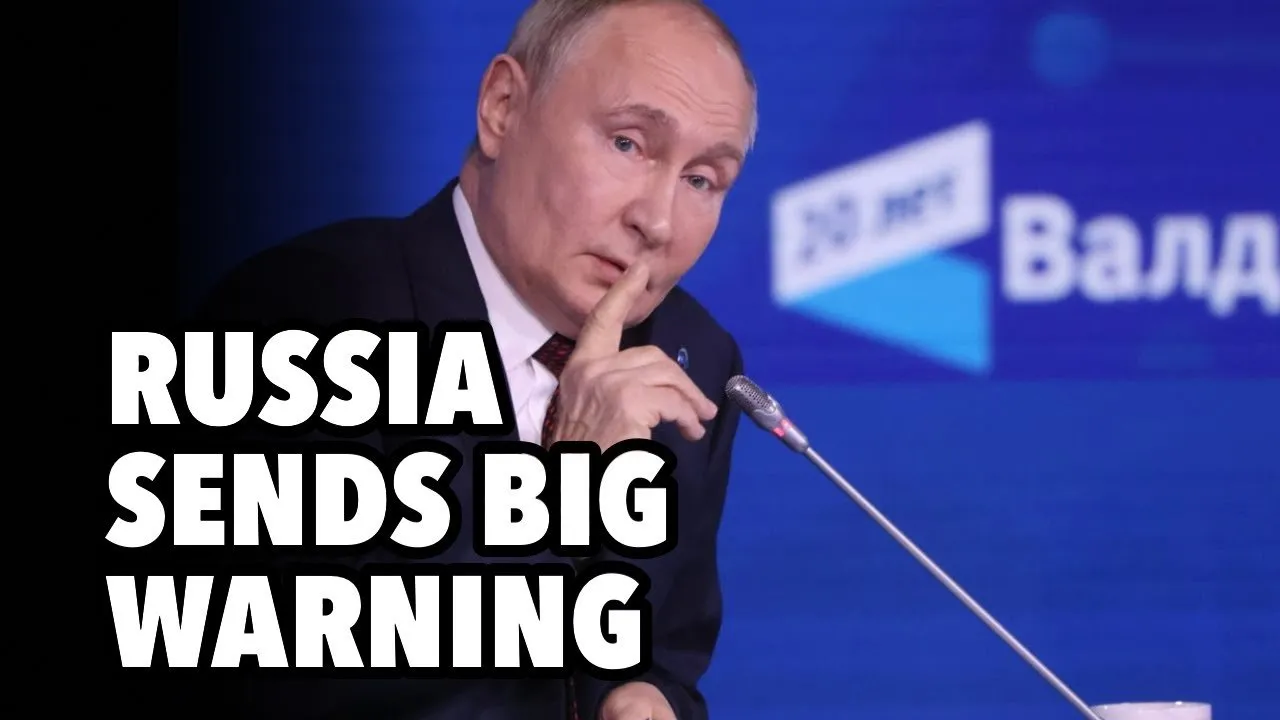Table of Contents
Mathematician and contrarian thinker Eric Weinstein exposes how elite institutions manufacture false narratives across academia, physics, media, and politics—and why breaking free from "managed reality" is essential for human progress.
Key Takeaways
- Harvard operates as two separate institutions: sharp minds producing prestige and sharp elbows wielding power, with the balance dangerously tilted toward the latter
- "Managed reality" represents coordinated institutional lying across academia, media, economics, and science to maintain power structures
- String theory has dominated physics for 40 years without meaningful progress, becoming a sociological rather than scientific phenomenon
- The UFO phenomenon likely involves long-running government programs that may or may not contain actual alien technology
- Elite universities practice "narrative-driven academics" similar to how the New York Times practices "narrative-driven journalism"
- DEI represents a "parasitization" of legitimate diversity goals, creating more problems than it solves through type I and type II errors
- Young men are pushed rightward by educational systems that demonize masculine instincts rather than channeling them constructively
- Modern society redistributes compassion rather than expanding it, creating artificial hierarchies of victim worthiness
- Physics stagnation threatens humanity's ability to become a spacefaring civilization and unlock new energy sources
- Breaking free from managed reality requires individuals willing to speak uncomfortable truths despite social and professional consequences
Timeline Overview
- 00:00–11:02 — The Downfall of Harvard: How America's premier university fuses brilliance with power, why Claudine Gay's plagiarism represents deeper institutional rot, and the role of "star chambers" in maintaining academic narratives
- 11:02–22:14 — Is This the End of DEI?: The difference between legitimate diversity goals and DEI parasitization, why exclusion is necessary for excellence, and how activist academic disciplines undermine scholarship
- 22:14–29:58 — Are Legacy Admissions a Bad Thing?: Why legacy preferences may become worthless as elite institutions lose prestige, comparing institutional decline to Marvel's self-destructive narrative choices
- 29:58–38:45 — Why Stephen Hawking is in the Epstein Documents: Jeffrey Epstein's interest in physics and gravity research, the "confronting gravity" conference, and speculation about next-generation physics applications
- 38:45–52:45 — The Problem With String Theory: Edward Witten's intellectual dominance, the sociology of scientific stagnation, and why "there are no other roots" represents anti-scientific dogmatism
- 52:45–56:00 — When Will it Be Time to Put String Theory Down?: The 40-year failure of string theory, why physics needs ethical retraining, and the psychological barriers to admitting decades of wasted effort
- 56:00–1:05:00 — The Current State of Aliens & UFOs: Government programs likely exist but evidence for actual aliens remains absent, the coordination problem of widespread similar testimonies
- 1:05:00–1:18:29 — Technology Required for Aliens to Come to Earth: Why standard physics makes cosmic travel impractical, the need for theories beyond general relativity and the standard model
- 1:18:29–1:23:59 — Why Can't We Say Certain Things?: Milgram questions, the chilling effect on discourse, and how inclusion creates low-trust environments in previously high-trust spaces
- 1:23:59–1:35:55 — Eric's Predictions for the 2024 Election: Both parties want to maintain their "troughs" more than serve America, the uncertainty of Biden's health and competency questions
- 1:35:55–1:53:16 — Wanting Fame is Like Wanting to Be on the Titanic: The hidden costs of public recognition, why fame doesn't sit comfortably on anyone's shoulders, and the loss of privacy
- 1:53:16–1:59:57 — Society's Nostalgia for a Unifying Narrative: The load-bearing nature of religion, why humans naturally flit between belief and doubt, and the power of religious music and prayer
- 1:59:57–2:15:14 — Why Teenage Boys Are Becoming More Right-Wing: Educational systems that attack masculine instincts, the tragedy of youth suicide, and how boys are pushed away rather than guided
- 2:15:14–2:30:20 — The Rising Trend of Toxic Compassion: Redistributing empathy rather than expanding it, middle-aged white male suicide statistics, and the danger of compassion hierarchies
- 2:30:20–2:38:10 — The Letter Churchill Received From His Father: How harsh parental criticism shaped one of history's greatest leaders, the relationship between childhood trauma and adult achievement
- 2:38:10–2:44:40 — Why the UK Makes Eric Angry: Britain's potential for continued leadership despite post-imperial decline, the difference between visual diversity and meaningful cultural integration
- 2:44:40–2:55:37 — What's Next for Eric: His geometric unity theory as potential breakthrough physics, the need for hope and quests in a stagnating world
- 2:55:37–end — Final thoughts on breaking free from managed reality and the importance of speaking uncomfortable truths
Harvard's Dual Nature: Sharp Minds and Sharp Elbows
Key Quote: "Harvard is really the fusion of two separate institutions... one is about brilliance and one is about power... you can think about this as the sharpest minds and the sharpest elbows."
Eric Weinstein's analysis of Harvard reveals an institution where academic excellence serves as cover for power manipulation. The "sharp minds" produce genuine intellectual breakthroughs that create prestige, while the "sharp elbows" use that prestige to maintain political and economic influence. This symbiotic relationship has historically worked because power needed to take a backseat to academics for the system to maintain credibility.
The Claudine Gay affair represents what happens when this balance breaks down. Gay's appointment as "a scholar's scholar" despite a weak academic record signals that the power faction has overwhelmed the intellectual one. The plagiarism controversy wasn't just about attribution—it revealed how Harvard's "star chambers" operate behind closed doors to manufacture narratives and distribute credit regardless of actual merit.
Elite Insight: "Harvard practices narrative-driven academics... it tells you what is happening, what the grand arcs are, and those, just like the 2016 election, are very often untrue."
This narrative control extends far beyond one university. Harvard serves as an intellectual north star for other institutions, setting not just research priorities but entire frameworks for understanding reality. When Harvard corrupts its truth-seeking mission for political ends, the damage cascades through the entire knowledge-production system.
Weinstein's personal experience illustrates this power. He describes being barred from attending his own thesis defense—an unheard-of violation of academic norms that demonstrates how Harvard's closed-door processes can override established procedures when convenient. These "star chambers" operate throughout the institution, from the economics department's jobs market meetings to immigration decisions affecting students' futures.
The Managed Reality System
Key Quote: "We are being given instructions right now to pretend on everything... pretend that you don't understand the CPI, pretend that you don't understand immigration and labor markets, pretend that you don't understand physics, pretend that you don't understand plagiarism."
Weinstein's concept of "managed reality" describes a coordinated system where institutions across society—universities, media, government agencies—work together to maintain official narratives regardless of their truth value. This isn't traditional censorship but rather the creation of environments where speaking certain truths becomes socially and professionally impossible.
The system operates through what he calls "Milgram questions"—situations where the social penalty for giving an unflattering but true answer far exceeds any reward for honesty. People learn to self-censor not because they're directly threatened, but because they understand the consequences of stepping outside acceptable discourse boundaries.
Elite Insight: "There's a cop... with an automatic weapon [who] says 'nothing to see here folks, move along'... but when you start to say that to your experts, to the HazMat team... when you're constantly telling everybody who has a stake in something and particularly everybody who has expertise in something 'you're a charlatan, you're a grifter, you're a fake, you're a fraud'... it's like shut up, just shut up."
This managed reality operates across seemingly disconnected domains. The Bureau of Labor Statistics manipulates inflation calculations to transfer wealth. Academic departments coordinate to suppress inconvenient research. Media outlets shape narratives before facts emerge. Physics departments prevent challenges to dominant theories. The common thread is institutional protection of preferred stories over truth-seeking.
The consequences extend beyond individual cases of fraud or bias. When expertise itself becomes suspect and institutional credibility collapses, society loses its ability to distinguish between genuine knowledge and propaganda. This creates space for both dangerous misinformation and the dismissal of legitimate expertise when it's genuinely needed.
The String Theory Stranglehold
Key Quote: "There are no other roots, there are just words... I can't imagine anything less scientific coming out of the mouth of Edward Witten."
Weinstein reserves particular fury for the 40-year dominance of string theory in theoretical physics. He argues that Edward Witten—arguably the world's most brilliant theoretical physicist—has used his intellectual authority to shut down alternative approaches to fundamental physics, creating a scientific monoculture that has produced no meaningful progress.
The problem isn't that string theory is necessarily wrong, but that it has become scientifically unethical. When the field's leading figure declares that alternative approaches are "just words" and refuses to engage with serious critics, science devolves into dogma. This represents a category error: confusing mathematical brilliance with scientific leadership.
Elite Insight: "We're now in 2024, this is the 40th year anniversary of the green-Schwarz anomaly cancellation which basically handed the keys to the liquor cabinet of physics over to the string theorists and they've been drunk on these stories... they just had a panel discussion at the World Science Festival... this thing is delusional."
The sociological dimension matters more than the technical one. String theory captured the field not through experimental validation but through institutional momentum. Young physicists learn that career advancement requires working on string-related problems. Alternative approaches receive no funding. Conference talks and journal publications flow through string theory networks.
This creates what Weinstein calls a "spell"—a self-reinforcing intellectual ecosystem where brilliant people convince themselves they're making progress while actually treading water. The spell's power comes from the genuine mathematical beauty of the work and the intellectual caliber of its practitioners, making it especially difficult to break.
The stakes extend beyond academic careerism. Physics stagnation threatens humanity's long-term survival prospects. If consciousness is going to spread beyond Earth, it will likely require breakthrough physics—new understanding of spacetime, energy, and matter that could enable technologies like wormhole travel or zero-point energy harvesting. Forty years of theoretical dead ends may have cost humanity its shot at becoming a spacefaring civilization.
The UFO Phenomenon and Physics Implications
Key Quote: "I'm very interested in this topic specifically because the universe is either traversable or it isn't, and if it is, it's not surprising that anyone's here, and if it isn't, we die here in short order."
Weinstein approaches the UFO question through the lens of physics rather than conspiracy theory. He argues that the circumstantial evidence for long-running government programs is overwhelming, but proof of actual alien technology remains absent. This creates a puzzle: why would such programs exist if there's nothing to study?
His speculation centers on the possibility that someone—whether aliens or a more advanced human civilization—has demonstrated physics beyond our current understanding. This would explain Jeffrey Epstein's interest in theoretical physicists like Stephen Hawking and the "confronting gravity" conference. If breakthrough physics exists, controlling access to it would represent the ultimate strategic advantage.
Elite Insight: "If there are things about the fabric of spacetime that you can unlock that are not contained in general relativity nor in the standard model, how much power do you think is in that? You saw what the neutron did to unlock the strong force... you can take out a city with a little bit of physics."
The fundamental question is whether the universe is traversable using physics we don't yet understand. Standard general relativity and the standard model make interstellar travel virtually impossible—the energy requirements and time scales are prohibitive for biological beings. But if spacetime isn't fundamental, if there are additional dimensions or hidden symmetries, then techniques that appear to violate known physics might be possible.
This connects to Weinstein's broader critique of physics stagnation. We may be trapped not just on Earth but within a theoretical framework that blinds us to breakthrough possibilities. If aliens are here, they're using physics we've been systematically prevented from discovering by our own intellectual institutions.
The Redistribution of Compassion
Key Quote: "What we're talking about is a redistribution of compassion... we're talking about taking compassion away from people of European descent, we're talking about taking compassion away from men, we're talking about taking compassion away from a business person like Steve Jobs who might have pancreatic cancer."
Weinstein distinguishes between genuine empathy expansion and what he sees as compassion redistribution—a zero-sum game where certain groups receive enhanced sympathy while others become ineligible for concern. This creates artificial hierarchies of victimhood that ignore actual suffering patterns.
The statistical example he provides is striking: middle-aged white men have the highest suicide rates in America, yet this demographic receives minimal institutional compassion because they're coded as "privileged." This reveals how ideological frameworks can override empirical reality when distributing social concern.
Elite Insight: "If you look at suicide statistics in the United States... from all of the rhetoric you would think that young black Asian females would be at the top of the suicide statistics, but it's really middle-aged white men who are killing themselves in incredible numbers."
The mechanism operates through what Weinstein calls "toxic compassion"—prioritizing short-term emotional comfort over truth and long-term outcomes. Rather than expanding the circle of concern to include all suffering, institutional systems create hierarchies where some pain matters more than others based on political utility rather than human need.
This dynamic particularly affects young men in educational settings. Instead of channeling masculine instincts constructively, schools often treat normal male development as pathological. Boys are told their natural tendencies are toxic while simultaneously being offered no positive alternative identity or purpose.
The result is a generation of young men who feel unwelcome in mainstream institutions and naturally gravitate toward alternatives that offer them dignity and direction. Rather than addressing the underlying institutional failures, the response is often to double down on messages that push these young men further away.
The Price of Truth-Telling
Key Quote: "I keep using the same stupid algorithm saying 'hey, that thing about UFOs doesn't make sense' or 'we could clear this up in an afternoon'... I keep trying to solve somebody's owned problem."
Weinstein's analysis reveals why truth-telling has become so difficult in modern institutions. Many problems are "owned"—they serve someone's interests precisely by remaining unsolved. The person rebuilding homes after fires doesn't want fewer fires. Healthcare systems don't necessarily want nutrition to reduce patient loads. Arms manufacturers don't want more peaceful worlds.
This creates an environment where problem-solvers become threats to problem-owners. When Weinstein points out obvious solutions or contradictions, he's not just correcting errors—he's threatening entire business models and power structures built around maintaining those problems.
Elite Insight: "My problem is I keep trying to solve somebody's owned problem... all of these very simple things we don't adjudicate... we are just lying, lying, lying, lying is the substrate of our society."
The psychological challenge for truth-tellers is learning to recognize when you're fighting someone's business model rather than mere ignorance or confusion. Rational arguments won't work against willful blindness that serves institutional interests.
This explains the coordinated response pattern that follows truth-telling: personal attacks, credibility destruction, Wikipedia manipulation, and social isolation. These aren't random reactions but systematic defensive measures designed to protect managed reality from inconvenient facts.
The tragedy is that many important problems could be solved quickly if institutions actually wanted solutions rather than perpetual management opportunities. But clearing up UFO claims in an afternoon, fixing inflation calculations, or acknowledging physics stagnation would eliminate valuable sources of power and funding.
Conclusion
Dr. Eric Weinstein's analysis reveals how elite institutions have evolved from truth-seeking organizations into narrative-management systems that prioritize power preservation over knowledge advancement. His concept of "managed reality" explains how coordinated institutional lying has become the norm across academia, media, government, and science. Breaking free requires individuals willing to pay the personal costs of speaking uncomfortable truths and enough people recognizing that the current system serves institutional interests rather than human flourishing. The stakes couldn't be higher: our ability to solve existential challenges and continue progressing as a species depends on rebuilding institutions that actually seek truth rather than merely managing acceptable narratives.
Practical Implications
• Recognize Institutional Capture: Understand that many problems persist because solving them would eliminate someone's power base or revenue stream rather than due to genuine difficulty
• Question Narrative-Driven Conclusions: When institutions present predetermined story arcs before facts emerge, maintain skepticism about their objectivity and seek alternative information sources
• Support Truth-Tellers Despite Personal Costs: Recognize that people challenging institutional narratives often sacrifice careers and social standing, requiring public support to continue their work
• Distinguish Between Genuine Expertise and Credentialism: Evaluate ideas based on their merit rather than the institutional affiliations of those presenting them
• Create High-Trust Information Environments: Seek communities where uncomfortable truths can be discussed without immediate social punishment or professional retaliation
• Resist Compassion Redistribution: Expand empathy for all human suffering rather than accepting artificial hierarchies that determine whose pain matters based on political utility
• Challenge "Owned Problems" Locally: Identify situations in your sphere where problems persist because someone benefits from their continuation rather than resolution
• Maintain Intellectual Humility: Recognize that even brilliant institutions and individuals can become captured by dogmatic thinking that prevents genuine progress
• Support Alternative Knowledge Production: Fund and participate in independent research, journalism, and education that operates outside captured institutional frameworks
• Prepare for Managed Reality Collapse: Develop skills and networks for navigating information environments where traditional institutional credibility has been permanently damaged





